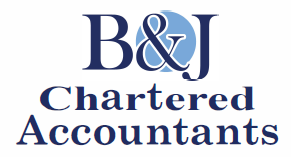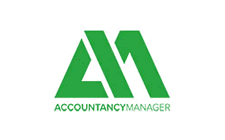Company motorbikes - a two-wheeled tax trap?
You’ve taken on a youngster as a general assistant for your business. The role includes making local deliveries for which your firm provides a motorbike. This could trigger unexpected tax and NI charges. What steps can you take to avoid them?

Employer-provided assets
The private use by a director or employee of an asset provided by their employer usually results in an income tax charge on a benefit in kind for the individual and a Class 1A NI bill for the employer.
This applies to employer-provided motorbikes. Unlike cars, there are no special rules for working out the taxable amount for motorbikes, instead the amount is calculated using the so-called “residual liability” rules.
Potential tax and NI cost
If you provide a motorbike to an employee which is available for their private use, the benefit in kind and thus the tax and NI liabilities depend on the cost of providing the bike and any running expenses.
The rules say that for every tax year the cost of providing a bike is the greater of:
- 20% of its value at the time you first provided it as a benefit in kind, or if you didn’t buy the bike but rented or leased it instead
- the rent or hire charge you pay.
Example. The Acom Food Emporium offers a local delivery service. For this purpose two of its staff are each provided with a motorbike. These are leased at £960 per year (inc VAT). The market value of each bike was £4,000 (inc VAT). They were first made available to the employees three months after purchase when they were each worth £3,600. The taxable amount per year is £960, i.e. the greater of the rent and 20% of the value when first provided, i.e. £725. Acom also pays the fuel and running costs (insurance, servicing, etc.). If the motorbikes were available for all of 2025/26 and the running costs were £700, the taxable amount for each employee is £1,660, and Acom must pay Class 1A NI of £498 (£1,660 x 2 x 15%).
Note. The values used for the calculations must include the full VAT amount even if the business reclaims all or part of it.
The rules can result in a taxable benefit in kind even if there’s no private use. The bike only has to be “available” for private use by the employee or a member of their family or household for the tax to apply.
When is a motorbike “available”?
The trap is especially tricky to avoid because even if you intend for the motorbike to be used only for business journeys the rules say that it counts as “available” for private use unless you specifically prohibit private use and no private use occurs.
Private use that’s incidental to business is ignored and won’t by itself result in a taxable benefit in kind. For example, if while on a business journey the employee stops en route, say for a lunch break at a café. Where there is a taxable benefit, i.e. because the bike is available for or actually used for private journeys, it is reduced in two circumstances: where the use of a motorbike is shared by employees; and it is not available to the employee for a period.
To prevent a tax and NI charge, have a motorbike usage policy which clearly states that private use is prohibited.
Related Topics
-
Beating the landlord tax hikes
Once again, landlords will be hit by tax increases announced in the Budget, even if they are operating through a company. What are the changes, and can anything be done to mitigate them?
-
Electronic VAT return
-
Government announces significant climbdown on IHT reforms
The introduction of a £1 million cap on 100% business and agricultural property relief from April 2026 has been criticised particularly heavily by the farming industry. The government has announced a significant watering down of the measure. What’s happening?




 This website uses both its own and third-party cookies to analyze our services and navigation on our website in order to improve its contents (analytical purposes: measure visits and sources of web traffic). The legal basis is the consent of the user, except in the case of basic cookies, which are essential to navigate this website.
This website uses both its own and third-party cookies to analyze our services and navigation on our website in order to improve its contents (analytical purposes: measure visits and sources of web traffic). The legal basis is the consent of the user, except in the case of basic cookies, which are essential to navigate this website.